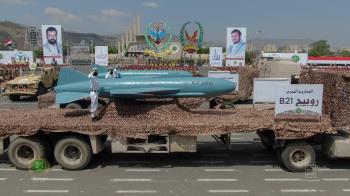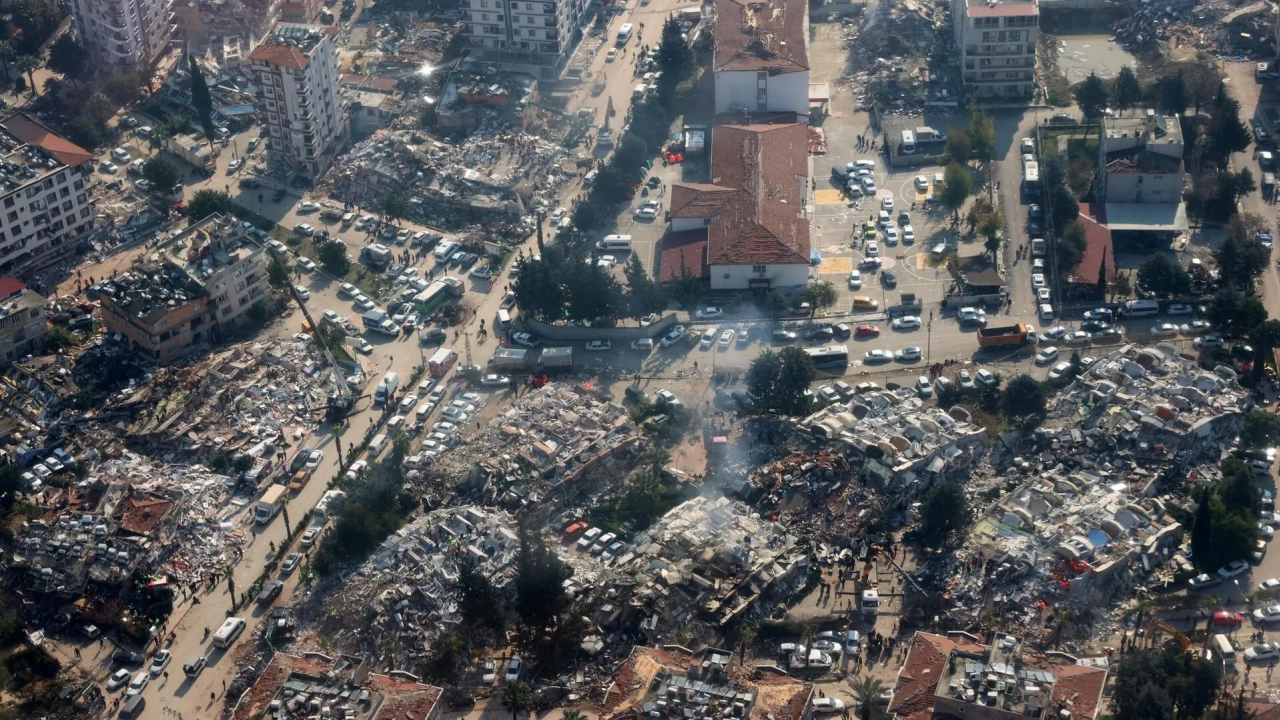The southern Turkish town of Pazarcik, the epicentre of the devastating February 6 earthquakes, people are focused on just trying to survive. Tens of thousands of residents left the town after the disaster and for the ones left behind without adequate shelter or facilities, holding a presidential election on May 14 seems incongruous.
They live in the dust, surrounded by the wreckage of buildings slated for demolition. The town of Pazarcik, the epicentre of the February 6 earthquakes in Turkey’s southern Kahramanmaras province, is a shadow of its former self. Only a few damaged buildings have been demolished and the rubble cleared away to make way for vacant lots.
“There’s no one left in the streets," laments Mustafa Kayki, a local elected official of the Nationalist Movement Party (MHP), a rightwing nationalist party. “Around 20,000 people have left Pazarcik since this terrible tragedy. Our voters are scattered. Pazarcik has been scattered. Our dear Pazarcik has turned into hell overnight, dark, a ruined city. It's painful."
The city was once home to 70,000 inhabitants, mainly Kurds and Alevis, a religious minority that professes a heterodox Islam, which counts, among its members, Kemal Kilicdaroglu, the main opposition candidate in the 2023 presidential election.
At a street corner, two construction workers are busy renovating a shop on the ground floor of a building, which has a big pile of cement stacked at the entrance. There are no signs of political campaigning here and the workers appear indifferent about the upcoming polls. "There’s nothing to say. Just look around," shrugs one worker.
The two workers, who prefer to remain anonymous, are not very affable. They reveal, rather bitterly, that this construction work is financed by the diaspora that left the country for Europe in the 1990s. "Life has resumed since the earthquake but we don't know how long it will last. Those who had money have long since left," explains a worker.
When people are asked about the May 14 election, their faces cloud over. Pazarcik’s remaining residents explain that they are "afraid to speak out and get arrested". There’s a palpable fear of openly criticising the ruling Justice and Development Party (AKP), which has been in power for 20 years, and its leader, President Recep Tayyip Erdogan, appears particularly out of bounds.
“It’s not the right time to organise an election," says Kayki. "People here are not thinking about elections, they are thinking about how they will survive. What am I going to eat? Where am I going to stay? These are their only concerns."
‘I don’t think I will vote’
It’s a view echoed by Adem Kutuk, a 49-year-old carpenter who has lived in Pazarcik for 24 years. "After everything we've just been through, I wish there was no election. What’s the point? Only those who live here, in these ruins, can understand. I don't think I will vote," he explains before making it clear that he does not want to “talk about politics".
In his small workshop, Kutuk is overwhelmed with work. "I wish there was no earthquake. I wouldn't have so much work today. We have so much, too much work. Everywhere we go, we're fixing kitchen cabinets, closets ... Anything we can get back in shape."
Shortly after the earthquakes struck, Kutuk and his colleagues went into battle mode, trying to help the victims. "We went to Iskenderun, in Hatay province, to buy particleboard to repair houses," says the craftsman who now lives in a three-room hut that he built for his wife and two children after the quake.
‘The earthquake changed everything’
Funda Ozdilli has not been as lucky. The 36-year-old housewife lives in a tent – like an estimated 2.7 million people across Turkey rendered homeless by the earthquakes. Ozdilli lives here with her husband and 15-year-old daughter.
"I can't tell you what we’re going through. Talking about it and living it are two different things," she says quietly as she does the dishes under a tarp stretched in front of the entrance to her makeshift shelter. “I knocked on many doors to ask for help but they remained closed. I said we were homeless, that we needed a tent. I finally received this one."
The Kurdish woman has not seen any of the 10,000 liras [465 euros] economic aid promised by Erdogan back on February 9, during a presidential trip to the southeastern city of Gaziantep. "Some people have got 10,000 or 15,000 liras,” she says, referring to a resettlement assistance. “I didn't get anything. I don't know why."
Hands plunged in a basin of soapy water, she talks about the stifling heat, the lack of sanitary facilities, the absence of showers, the terror when a snake invited itself into the family tent. "I’m not asking for money. I just want a roof over my head. Is that too much to ask?"
Shelter, a place to call home, that's all Ozdilli dreams about these days. "If I could find a house for 1,000 pounds [47 euros], I would do everything I could to pay for it. But how can I pay 3,000 pounds rent every month? My husband is the only one working. We are not rich," she explains.
Erdogan has promised to build more than 450,000 earthquake-resistant homes "within a year". It’s an eternity for many who, like Ozdilli, live in precarious shelters. "I'm not going to vote for anyone. Who do you want me to vote for? I don't think about it. I'm desperate. The earthquake has changed everything. People don't know who to trust anymore," she says with a blank look. “No one has the right to ask us for our vote. They have to find solutions for us first. Then we can talk about the vote."
Source: France 24



























